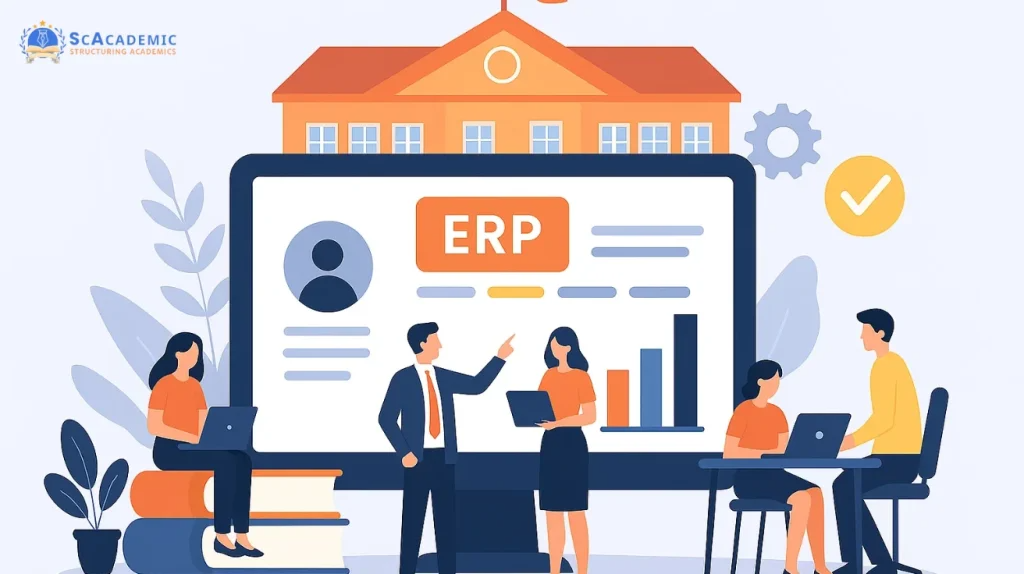Why Every Professional Course Institute Needs a Specialized ERP in 2025
In a quiet town in early 2023, the head of a well-known professional course institute sat at her desk, buried under piles of student records, payment receipts, and exam timetables. She sighed as her phone buzzed again—another inquiry about the availability of seats in a course that had already closed admissions. It wasn’t the first time. And it certainly wouldn’t be the last… unless something changed.
Fast forward to 2025. That same institute now runs with precision. Timetables are managed without chaos, faculty schedules never overlap, inventory is in check, and students and parents feel informed, respected, and engaged. What changed?
A specialized ERP system built precisely for professional course institutes.
A New Era of Institutional Management
Unlike traditional schools or colleges, professional course institutes operate in a dynamic and fluid environment. Admissions happen year-round, courses range from short certifications to full-time diplomas, and student expectations are increasingly driven by speed, transparency, and results.
Managing such complexity with spreadsheets, offline forms, or generic management software is not just outdated—it’s risky.
In 2025, institutes need more than just software. They need structure, visibility, and coordination—all delivered through a tailored ERP system designed specifically for them.
The Hidden Challenges Institutes Often Overlook
Let’s uncover what truly goes wrong behind the scenes:
- Fragmented Data: Student data is scattered across multiple systems, with academic records in one, financial information in another, and attendance tracked manually. When there’s a query, the admin team scrambles across platforms, often leaving both students and staff frustrated.
- Untracked Payments and Admissions: When admissions happen in multiple phases and fee structures vary per course or batch, mismanagement is inevitable unless there’s a single source of truth.
- Miscommunication Between Departments: Academic teams, administration, and finance often operate in silos. One entity rearranges an exam, and separately, another fails to communicate the change to students. Confusion follows.
- Inefficient Resource Planning: Whether it’s classrooms, faculty hours, or lab equipment, not knowing what’s available and when leads to either underutilization or overbooking.
Each of these might sound like a small hiccup, but together, they create a chain of inefficiencies that pull an institute away from excellence.
Why Generic Software Just Doesn’t Work
Many institutes have experimented with standard school ERPs, open-source tools, or multiple apps stitched together. But here’s the catch: professional institutes don’t follow a one-size-fits-all model.
They need:
- Course-specific modules
- Variable batch timings
- Advanced lead management
- Flexible fee structures
- Hybrid attendance models
- Exam systems for diverse course types (theory, practicals, project-based)
Only a specialized ERP understands this ecosystem.
2025: The Year of Expectations
Students today are more informed than ever. In 2025, they judge an institute not just by its faculty or course content, but by:
- How easy it is to apply
- How transparent the fee process is
- Whether they receive real-time updates
- How structured their learning journey feels
If an institute can’t offer this seamless experience, it loses out—not just on new admissions, but also on trust and reputation.
A dedicated ERP bridges this gap. It acts as the silent backbone, ensuring every interaction, every record, and every transaction is accurate, trackable, and timely.
What an ERP Brings to the Table
Let’s break it down. Here’s how a robust ERP system transforms every department:
- Admissions: Lead tracking, inquiry follow-ups, and batch-wise enrolment without overlaps.
- Academics: Define course modules, schedule classes, assign faculty, and manage exam types like theory, viva, or practicals, customized per course.
- Finance: Multiple fee slabs, installment tracking, real-time dues dashboard, and instant receipt generation.
- Communication: Send SMS, email, or portal notifications in batches, by student, or by course.
- Reports & Analytics: Every admin or principal can view student progress, fee collection status, or resource usage in just a few clicks.
This isn’t just software—it’s institute intelligence packed in a single platform.
Customization Isn’t a Luxury—It’s a Necessity
In 2025, the demand isn’t just about digitization. It’s about custom-fit technology that aligns with the institute’s identity. Every professional course institute has its own structure, flow, and operational rhythm.
A high-quality ERP system is designed to align with your organization’s workflow, instead of forcing your workflow to conform to the system.
It allows your team to:
- Modify workflows to match real scenarios
- Adjust the size or scope according to student enrollment.
- Set rules as per your internal processes
And most importantly, retain control while reducing clutter.
The Outcome: A Brand that Commands Respect
Institutes that operate smoothly earn more than just revenue—they build trust. Parents feel confident, students remain engaged, and faculty focus more on teaching than on administrative tasks.
A powerful ERP ensures this cycle never breaks.
Because in 2025, running a successful institute is no longer about handling chaos—it’s about delivering calm through clarity.
Conclusion: The Right Time is Now
You don’t need a futuristic solution. You need a reliable, thoughtfully designed, and specialized ERP that gets your world today.
Your students have changed. The expectations have evolved. Your institute shouldn’t be running on 2015 workflows anymore. Leap organized, transparent, and simplified operations now. Not tomorrow. Not next year. Because 2025 is already here.
And with the right system, so is your success.
#Scacademic #scacademic #ScAcademicERP #InstituteERP2025 #EdTechSolutions #ProfessionalCourseManagement #EducationWorkflowSimplified #NextGenERP




Comments
Post a Comment